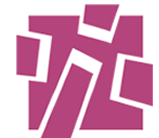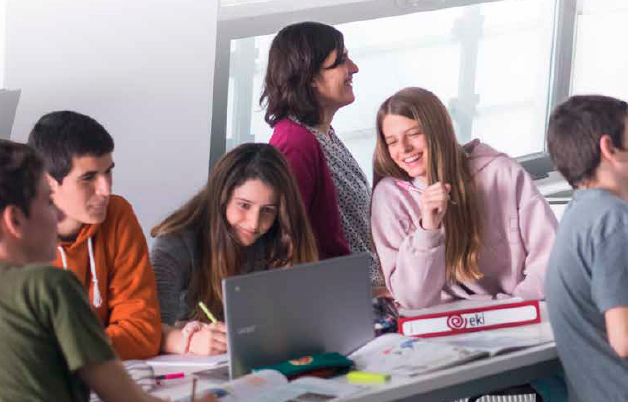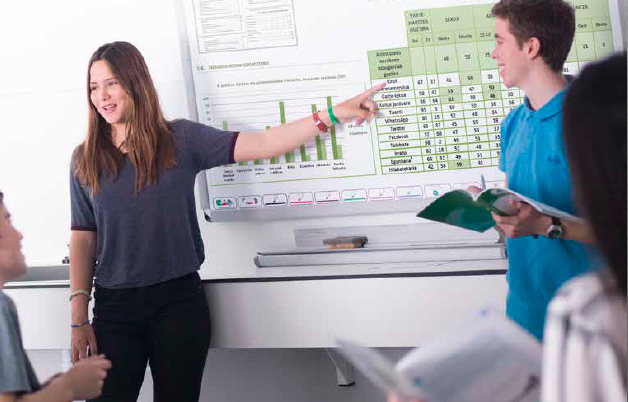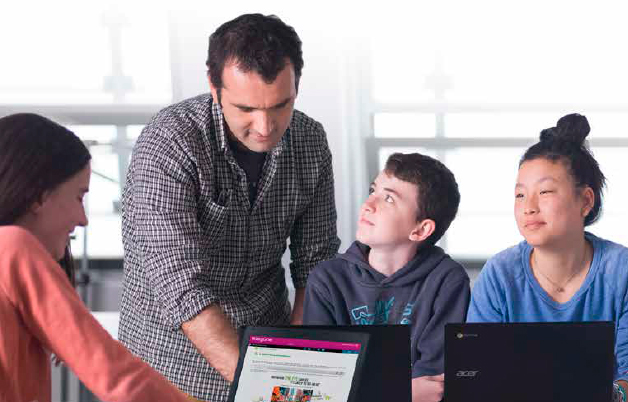|
|
Based on the official Curriculum The objective is holistic, integral personal development: obtaining the dual bases of our own culture and universal culture in order to continue studying at subsequent levels and to go on learning in the context of work and throughout life. |
|
|
|
Pupils’ leaving profile is the objective The knowledge, abilities and competences which pupils have to acquire at each level are specified. The whole curriculum of the educational process has been drawn up with the leaving profile in mind. |
|
|
|
Basic general skills are developed in different areas of learning Obtaining academic knowledge is not enough. Pupils must acquire competences for dealing with a variety of situations in life: thinking and learning, communicating, living in society, being themselves, showing initiative and getting things done. |
|
 |
Based on pedagogical integration Faced with real situations, pupils have to become accustomed to finding and making use of the resources they need; both individually and in groups. They have to try to find solutions, and make use of what they have learned when confronted with new situations. |
|
|
|
Cooperative learning is encouraged Pupils work in teams. Education-based participation is encouraged. Shared development is the objective and, to that end, each pupil’s role is defined beforehand. |
|
|
|
Multilingualism is developed Languages in the curriculum are integral and integrated - based on the Linguistic Interdependence Principle (Cummins, 1979) - ensuring that pupils build on their competences in the official languages and additional languages to communicate as well as to construct knowledge and represent experience. |
|
|
|
Digital competences are developed in the didactic units The aim is to use ICT in all areas. ICT achievement levels are set out in the didactic units and to fulfil these achievement goals, activities for developing digital competences are suggested in each unit. |
|
|
|
Assessment is based on the acquisition of basic competences Assessment is designed to show whether pupils have acquired the basic competences which comprise the specified school-leaving profiles (in both their subjects and in the metadisciplinary framework). Three types of assessment are used:
|
|
|
|
Teachers’ competences are developed In 21st century schools, teachers need to be able to create and manage educational situations in order to help pupils develop competences. Our challenge is to prepare training for the teachers who have to take the curricular suggestions specified in the EKI project into the classroom so that they can acquire the teaching skills which they need in order to carry this out. |
|
.




















